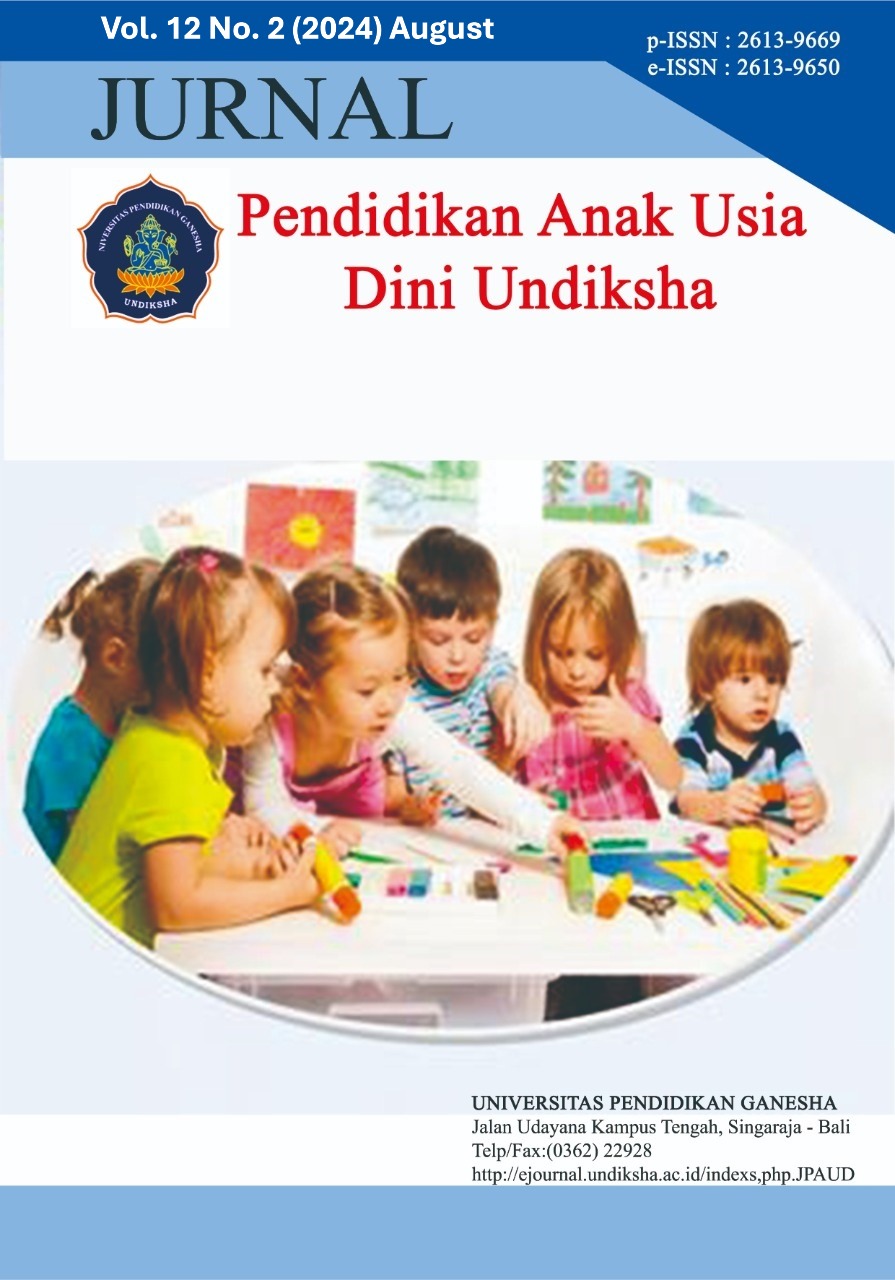Preserving Sundanese Pupuh Culture through Flipbook Media: Strengthening Mutual Cooperation in Early Childhood Education
DOI:
https://doi.org/10.23887/paud.v12i2.72521Kata Kunci:
Flipbook, Sundanese Pupuh, Strengthening Pancasila Student Profiles, Team WorkAbstrak
The Sundanese Pupuh culture has begun to experience a decline, characterized by the limited introduction and implementation of Sundanese culture in schools, particularly in early childhood education. There is a need for the preservation of the Sundanese Pupuh culture starting from an early age, which can be integrated with the P5 program (Project for Strengthening the Profile of Pancasila Students). This study aims to develop a flipbook media product based on Sundanese Pupuh culture to strengthen P5, particularly in the dimension of mutual cooperation. The media product is a story derived from the adaptation of the Gambuh pupuh, which has been transformed into a flipbook format. The approach used in this research is the ADDIE model, consisting of analysis, design, development, implementation, and evaluation steps. The developed product was evaluated for feasibility by media experts and content experts. After being deemed feasible, the product was tested for effectiveness with 8 teachers and 34 students from two schools. Data were collected through expert questionnaires, teacher responses, and observations. The data obtained were analyzed using a descriptive quantitative approach. The feasibility test results showed that content experts rated it 92% and media experts rated it 91%, both in the "very feasible" category. The teacher response test yielded 80%, indicating that it is suitable for use. The effectiveness test results showed that 88% of the children were in the "emerged" category, while 12% had not yet emerged. This indicates that the flipbook based on Sundanese Pupuh can be used to strengthen the dimension of mutual cooperation in early childhood education.
Diterbitkan
Cara Mengutip
Terbitan
Bagian
Lisensi
Hak Cipta (c) 2024 Yayu Mega Purnamasari, Jazariyah, Libri Rizka Puri Windarta, Amanda Rizkiyani Mulqiah

Artikel ini berlisensiCreative Commons Attribution-ShareAlike 4.0 International License.
Authors who publish with the Jurnal Pendidikan Anak Usia Dini Undiksha agree to the following terms:
- Authors retain copyright and grant the journal the right of first publication with the work simultaneously licensed under a Creative Commons Attribution License (CC BY-SA 4.0) that allows others to share the work with an acknowledgment of the work's authorship and initial publication in this journal.
- Authors are able to enter into separate, additional contractual arrangements for the non-exclusive distribution of the journal's published version of the work (e.g., post it to an institutional repository or publish it in a book), with an acknowledgment of its initial publication in this journal.
- Authors are permitted and encouraged to post their work online (e.g., in institutional repositories or on their website) prior to and during the submission process, as it can lead to productive exchanges, as well as earlier and greater citation of published work. (See The Effect of Open Access)











